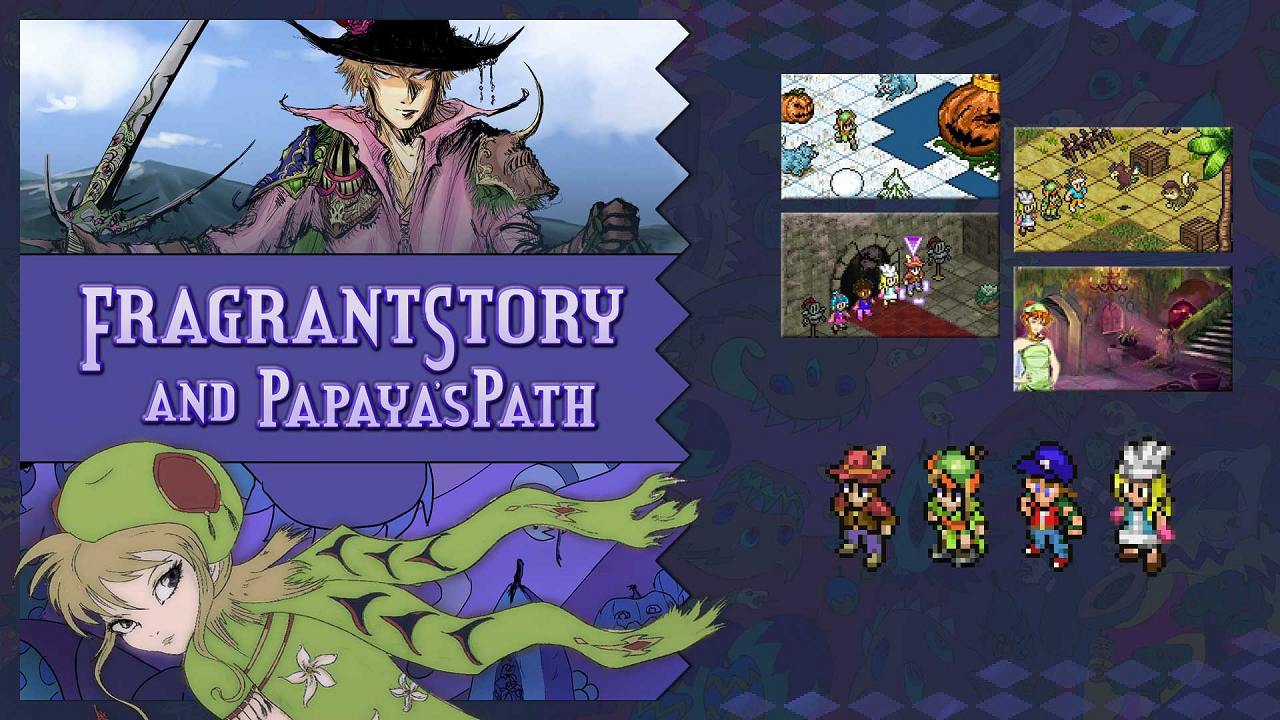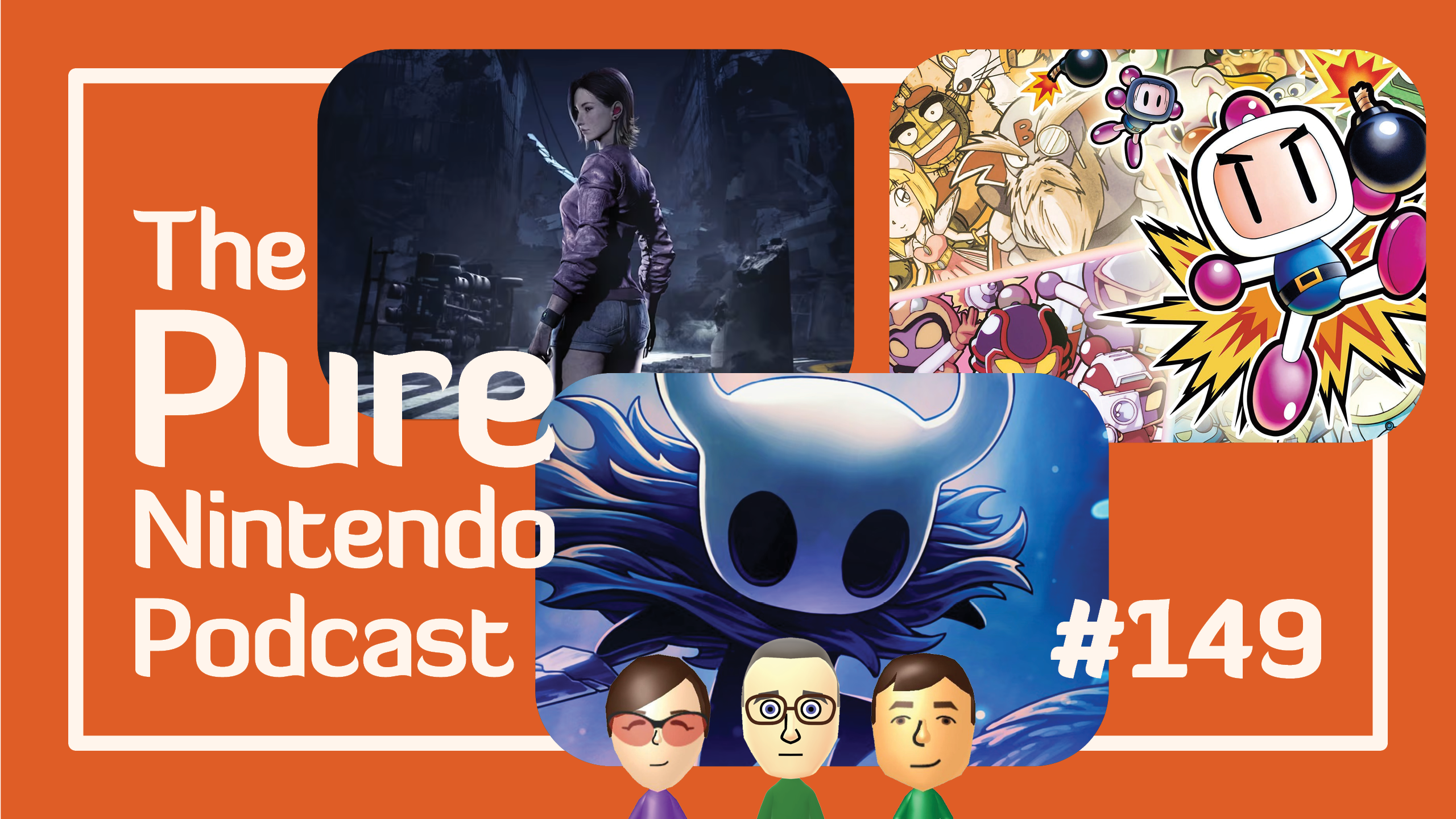Fragrant Story and Papaya’s Path (Nintendo Switch)

Are you in the market for a cool, little tactics RPG? Consider Fragrant Story and Papaya’s Path on the Nintendo Switch. This game landed on the eShop with little fanfare, but it’s an addictive strategy game that’ll keep completionists playing.
The origins of this game actually lie with the 3DS. It’s an interesting story (too long to recap here), but kudos to the developer for not just beating the eShop closure but adding sizable DLC to round out the package. It may be smaller when compared to other TRPGs, but plenty of content is still here to keep you busy.
The setup for the plot (which isn’t specified in-game, just the game’s website) is that of a game within a game. You’re playing this adventure in a VR cafe. You’ll see the characters with VR headsets at the start of battles and pixelated cutscenes to introduce them, but no explanation why. Alas. Still, the main tale is clever, with you in the role of defenders of Flowergard. It’s a land rich in cliffs, overgrown plains, swamps, and botanical puns. This theme carries through to most of the protective character attacks (slinging seeds, whipping with vines) and even the protectors themselves.
If you’re a fan of tactics games, the grid-based battles may hit that sweet spot of easy-to-learn but tough to master. For me, I play games like this sparingly. So, at first, I wasn’t up to the challenge. I was grateful for the practice-level difficulty, which as it turns out, is something you’ll want to play anyway. As I learned the characters and tricks, challenging missions soon turned easy, and I was advancing to normal and hard.
Though I didn’t mind starting with practice to warm up to the difficulty curve and better challenges, the developer must have recognized that not everyone would feel the same way. Genre vets should appreciate knowing you’ll earn bonus tickets (currency) for completing chapters on all difficulties. The hardest also has legendary treasures. And, you can experiment with the party, reducing the number of characters by leveling up the remaining as an example.
As you earn tickets (albeit not as quickly as you might expect), new items get added to the shop. Double experience and double rewards are ideal things to save up for. You’ll also unlock new characters with different movesets (melee, ranged attacks, etc.). The game does a successful job of doling things out, which helps minimize repetition. There are also over a dozen challenges to augment the story.
There’s depth as you mix and match your team. Some challenge missions have you going solo, though you’re usually juggling a group. I found these the best times to equip unlocked character abilities to see what each does. Not every character can shine as brightly in story chapters due to a more limited moveset, the particular enemies, or just level layout. But challenges give everyone their chance. It all goes back to my point about party experimentation and adjusting it in ways that bring the most rewarding satisfaction.
No matter if you’re playing story or challenges, I advise turning on timed hits. The game advertises these as optional, but I say this with the utmost respect, it’s misleading. If you hope to beat the game, timed hits are mandatory. There’s nothing worse than having five turns in a row result in blocks or misses only to have the enemy wipe you out with a critical (no exaggeration). That’s no “luck”—that’s just a subpar setting.
Of course, the hit wheel can still prove cheap, even with skill and timing on your part. On the highest difficulty, it’s “unreliable,” falling closer to the “luck” spectrum, which is cheap. It can also feel cheap playing with level-one characters the majority of the time or seeing said character default target a harmless crate off to the side instead of an enemy directly in front of them. But the game still has that “one more time” vibe, thanks to the diversity of characters, enemies, environmental obstacles, and more. At the risk of pruning a dead branch, did I mention it’s fun experimenting with your party?
A single ticket allows you to see your completion percentage meter. For players like myself, inclined to 100% games I enjoy, it’s largely effective in stimulating that completionist mindset. My wife and I put in double-digit hours and we’re not even at 50%. Yes, even though the game is a solo affair, it’s fun scanning the playfield to prepare your angle of attack and strategizing with a friend watching.
This game has some great pixel art and is a colorful affair. A few missions are “cabbage colored” in GB green, which works simply because it’s done so sparingly. The animations help personality come through, as do the occasional bits of dialogue. Speaking of, the game has such a well-made audio package. The vocals are not something most would expect for a budget-priced game, but it’s great stuff! The cast is stellar, and the recognizable dropping of subtle cues to some of their earlier work is a great little touch. We did run into a bug where the speech fell silent (even though the voice volume was at its highest setting), so that’s something to keep an eye on. The music is first class, with some missions playing it throughout while others have it chime in at select points only.
Fragrant Story and Papaya’s Path is a surprisingly deep tactics game that has kept us hooked. Offering a good bang for the buck in an aesthetically impressive package, it’s earned its recommendation.




